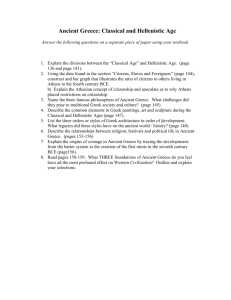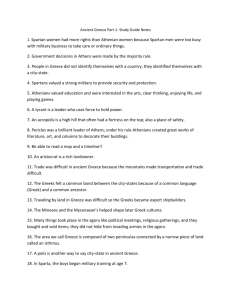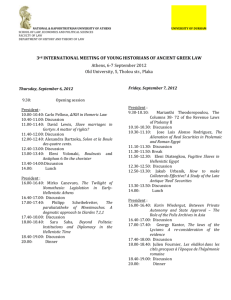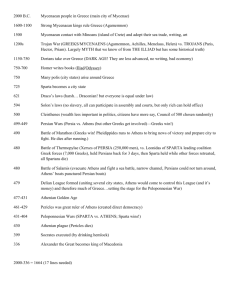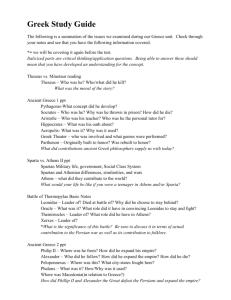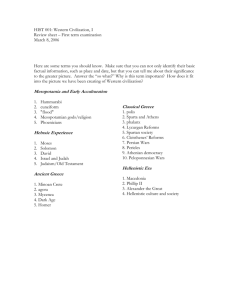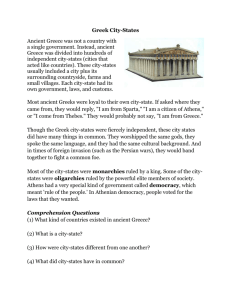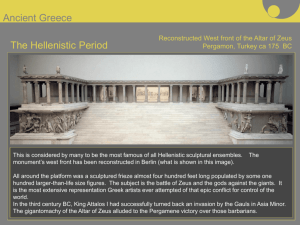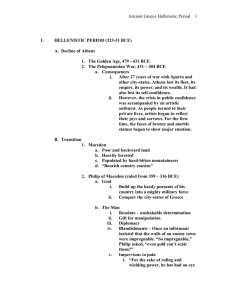Unit 1: From Prehistory to Early Civilizations
advertisement
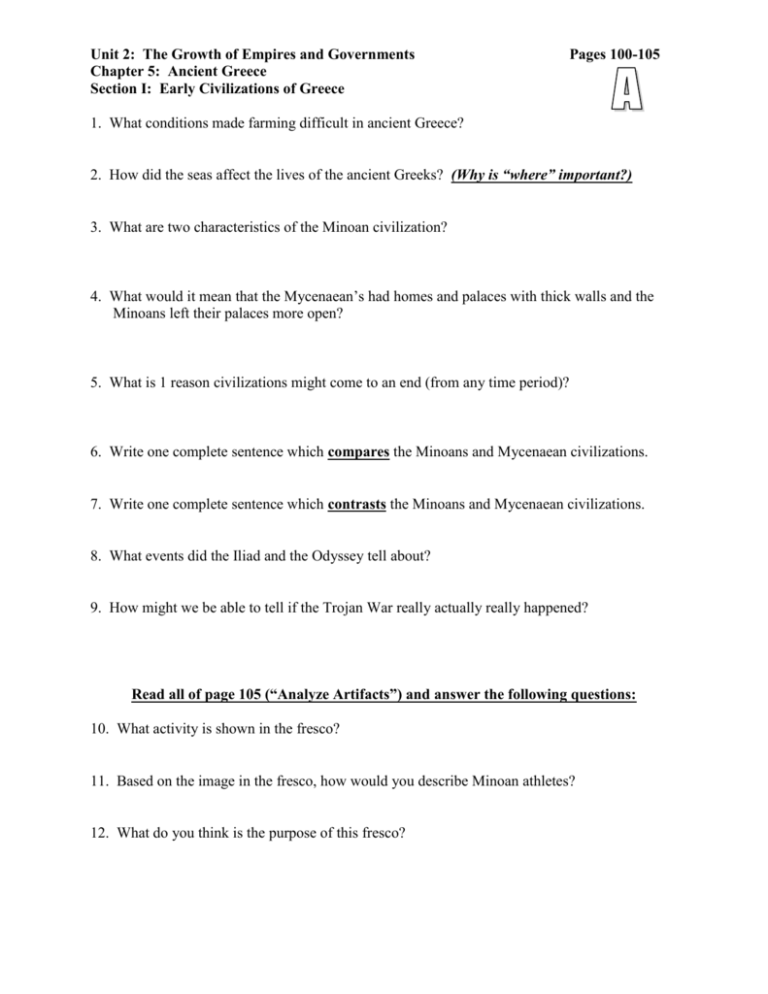
Unit 2: The Growth of Empires and Governments Chapter 5: Ancient Greece Section I: Early Civilizations of Greece Pages 100-105 1. What conditions made farming difficult in ancient Greece? 2. How did the seas affect the lives of the ancient Greeks? (Why is “where” important?) 3. What are two characteristics of the Minoan civilization? 4. What would it mean that the Mycenaean’s had homes and palaces with thick walls and the Minoans left their palaces more open? 5. What is 1 reason civilizations might come to an end (from any time period)? 6. Write one complete sentence which compares the Minoans and Mycenaean civilizations. 7. Write one complete sentence which contrasts the Minoans and Mycenaean civilizations. 8. What events did the Iliad and the Odyssey tell about? 9. How might we be able to tell if the Trojan War really actually really happened? Read all of page 105 (“Analyze Artifacts”) and answer the following questions: 10. What activity is shown in the fresco? 11. Based on the image in the fresco, how would you describe Minoan athletes? 12. What do you think is the purpose of this fresco? Unit 2: The Growth of Empires and Governments Chapter 5: Ancient Greece Section II: Greek City-States Rise to Power Pages 106-111 1. What are some characteristics all Greek city-states had in common? 2. What were two of the three types of government in Greek city-states? 3. What was the main purpose of life in Spartan society? (What do people value and why?) 4. Why was Sparta very concerned about its military strength? 5. Why is there a connection between serving in the military and participating in the government in ancient Greece? 6. What is one way a military school is different from a public school that might people choose one over the other? 7. What was one way Solon reformed laws that governed public life in Athens? 8. Both Sparta and Athens prepared boys for citizenship. Compare education in Athens to education in the United States today (in one way). 9. Contrast education in Sparta with education in the United States today (in one way). 10. How did the Persian Wars affect Greek unity? Unit 2: The Growth of Empires and Governments Chapter 5: Ancient Greece Section III: The Golden Age of Athens Pages 112-117 1. How did Pericles make the Athenian government more democratic? 2. How were government officials chosen in Athens? 3. Why was the period following the Persian Wars called “the Golden Age of Athens?” (What is progress and is progress inevitable?) 4. If Socrates would ask you: What does democracy mean to you? What would make him agree with what you think? (remember – goodness is knowledge and doing evil is worse than suffering from evil). (I know this is a very tough question.) 5. What does it mean to be a good citizen in your community? 6. The “Socratic “Method” is still used in some law schools and business schools. Do you prefer a class in which students have to constantly look for answer to questions on their own, or one where the teacher presents much of the information directly? 7. What were two of the results of the Peloponnesian War? 8. If Athens had won the Peloponnesian War, what might have happened next? 9. Compare living in Sparta to living at some other time/in some other place in history. 10. Contrast living in Sparta to living in some other time/place in history. Please read the bottom of page 113 (They Made History: Pericles) and answer the “Critical Thinking” question at the end. 11. “Critical Thinking”: Unit 2: The Growth of Empires and Governments Chapter 5: Ancient Greece Section IV: Alexander Builds an Empire Pages 118-121 1. How did Philip II gain control of the Greek city-states? 2. Why is Alexander called “the Great?” 3. Is there anyone during your lifetime that you could call “the Great”? What did they do? 4. What leadership qualities did Alexander display?(How is power gained, used, and justified?) 5. What was one of the new philosophies of the Hellenistic civilization? 6. Alexander encouraged “assimilation” when he conquered peoples (a blending of the Cultures). Why was this a good or bad idea? 7. We used the word “assimilation.” What’s a situation where you have assimilated into a new/another culture in the last year? 8. What were two characteristics of Hellenistic civilization? 9. Why do you think mathematics and science did so well in the Hellenistic world? 10. Hellenistic cities attracted people from many parts of the world. Compare the appeal of Hellenistic cities to a city in the United States today. 11. Contrast the appeal of living in a Hellenistic city to living somewhere in the world today? Broncos Fillies Pirates (worth 2 points) Frank Thomas Sammy Sosa Patrick Kane Blue Yellow Purple

